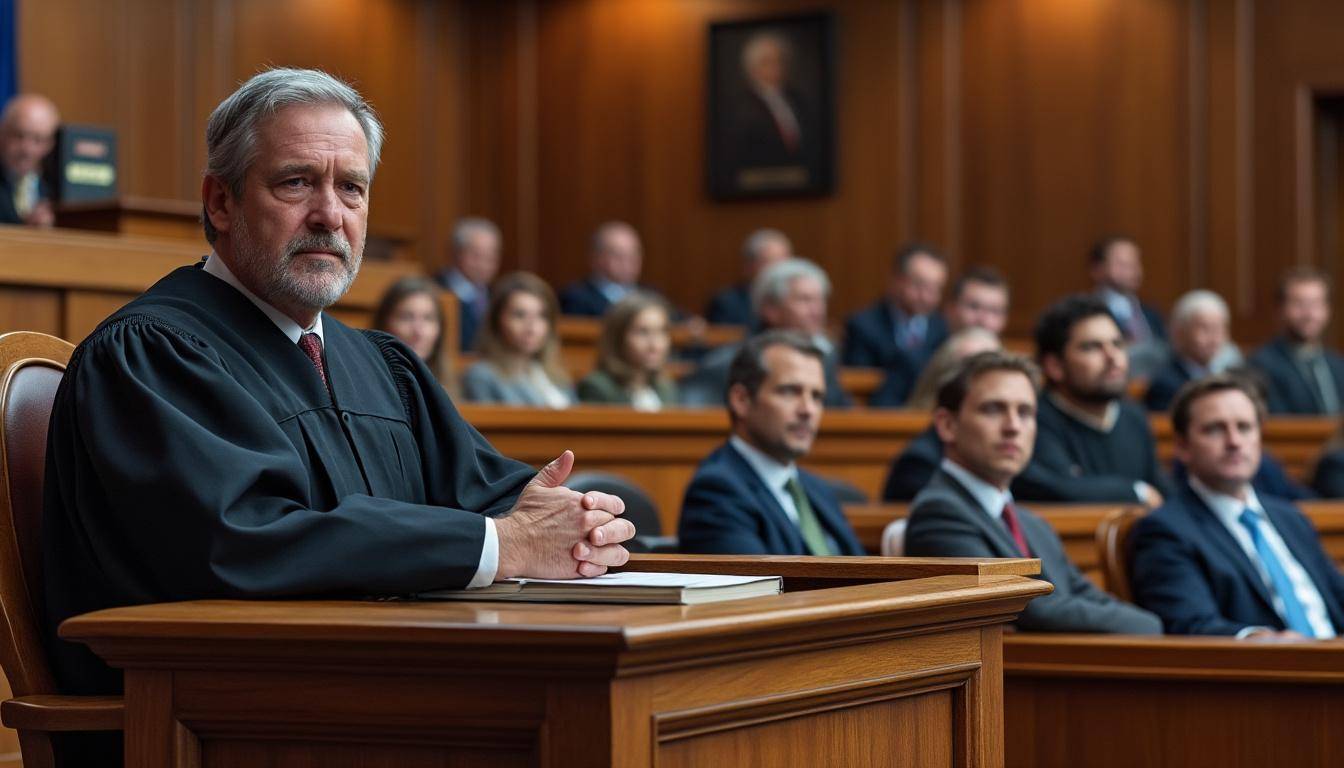In a striking 2025 decision, the Alberta Court of Appeal delivered a critical ruling regarding owner liability in a personal injury case involving third-party gunfire. The case highlights the complexity of negligence and gun safety laws when injuries occur due to the actions of a third party, rather than the firearm’s owner. This ruling not only clarifies legal precedent but also underscores the limits of responsibility firearm owners bear for others’ conduct, shaping the landscape of personal injury law in Alberta.
Alberta Court of Appeal’s Reasoning on Owner Liability in Third-Party Gunfire Injury Lawsuit
The case arose from a social gathering at a rural cabin where the appellant suffered severe injuries after a third party fired a rifle owned by the respondent. The appellant pursued a lawsuit alleging negligence on the part of the rifle owner. However, the Alberta Court of Appeal upheld the chambers judge’s summary dismissal of the claim, emphasizing several key points relevant to owner liability in such injury cases.
- Rifle Status on Incident: The court accepted the uncontested assertion that the rifle was unloaded when placed on the bench by the owner, aligning with the respondent’s affidavit and cross-examination statements.
- Duty of Care Established: Recognizing the dangers inherent in leaving firearms and ammunition present at a social event, the court found the owner owed a duty of care to those present.
- Scope of Standard of Care: The suggested requirement for continuous supervision of the rifle was deemed excessive and beyond what a reasonable person would anticipate.
- Foreseeability of Third-Party Conduct: An intentional act involving the weapon, taken and fired by an experienced third party as a prank, was ruled unforeseeable.
- No Breach Found: Leaving the rifle unloaded on a bench negated the likelihood of accidental discharge, and failure to prevent an unforeseeable criminal act did not constitute negligence.
This nuanced examination highlights the court’s careful balance between protecting individuals from harm while recognizing the limitations of liability when third-party misconduct is involved. Those impacted by similar incidents should note that establishing owner negligence requires clear proof of breach, which was absent in this ruling. For more insights on negligence and legal responsibilities relating to personal injuries, see our detailed analysis on Alberta Court of Appeal clarifications.
Impact of Court Ruling on Future Personal Injury Cases Involving Firearm Owners
This judgment sets a significant precedent restricting owner liability when firearm injuries result exclusively from third-party criminal acts. The Court’s reasoning provides a clearer legal framework considering the following aspects:
- Limits on Foreseeability: Legal responsibility does not extend to unforeseeable, intentional misuses by experienced third parties.
- Reasonableness of Precautions: Owners are expected to adopt reasonable safety measures but are not guarantors against all harm.
- Causation vs. Negligence: Even when causation exists, negligence must be established by showing a breach of the standard of care.
For victims attempting to navigate complexities when seeking compensation in injury cases from third-party gunfire, consulting a lawyer skilled in personal injury law remains essential. For practical guidance, explore articles on injury claim amounts in Alberta and the delay issues in settlements.
Legal and Safety Considerations Surrounding Gunfire Injury Lawsuits in Alberta
Besides owner liability, gun safety practices come under scrutiny in such lawsuits. This case strongly reinforces the importance of adhering to responsible firearm ownership but limits how breaches are legally recognized.
- Gun Safety Obligations: Owners must store and handle firearms in ways minimizing accident risks.
- Handling Social Situations with Firearms: Presence of guns at gatherings elevates potential duty of care considerations.
- Intersection with Criminal Liability: Liability for accidents caused by intentional criminal acts by third parties often falls outside civil owner liability.
Those pursuing claims involving third-party gunfire should weigh how these factors influence their legal strategies and expectations. Demand for rigorous application of negligence principles cannot override the boundaries set by foreseeability and reasonable precautions. Keeping informed on recent rulings and consulting experts can prevent costly missteps in litigation.
Key Takeaways for Individuals Facing Injury Claims Tied to Third-Party Gunfire
Victims and their families can consider the following when assessing potential lawsuits:
- Assess Duty of Care: Verify whether firearm presence created a reasonable duty.
- Evaluate Reasonableness of Owner’s Conduct: Did the owner take standard safety precautions?
- Understand Limits of Liability: Foreseeability of the third-party act is critical in proving negligence.
- Seek Experienced Legal Counsel: An attorney specialized in personal injury law provides vital guidance.
- Prepare for Litigation Complexities: Claims may involve intertwined issues of criminal and civil liability.
Understanding these elements helps frame expectations and prepares injured parties for costly battles. To explore shared conditions around legal responsibilities and insurance coverage, victims should consult reputable legal resources and trusted injury firms such as our highlighted new personal injury firm in Alberta.
Frequently Asked Questions About Owner Liability and Injury Cases from Third-Party Gunfire
- Q: Can an owner be held liable if someone else fires their gun without permission?
A: Liability depends on whether the owner breached a duty of care and if the third-party act was foreseeable. Courts generally do not hold owners liable for unforeseeable intentional acts by third parties. - Q: What standard of care must firearm owners meet at social events?
A: Owners should ensure guns are safely stored or unloaded. Continuous supervision is not usually required unless circumstances suggest otherwise. - Q: How does foreseeability affect negligence claims in gunfire injury lawsuits?
A: Negligence hinges on whether the injury was a reasonably foreseeable consequence of the owner’s conduct. - Q: Should a victim seek specialized legal advice for injury cases involving firearms?
A: Absolutely. A lawyer specializing in personal injury law can navigate the complexities of owner liability and criminal interactions. - Q: Where can I find more information about injury claims and court rulings in Alberta?
A: Visit comprehensive legal sites like Court Injury Resources for updates and guidance.
